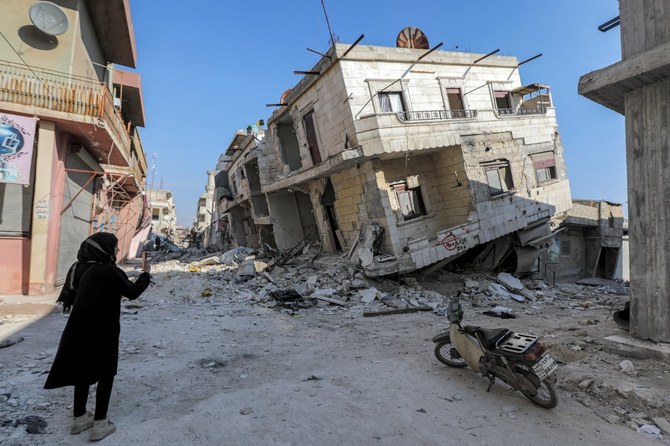Khaled Abou Zahr
The suspension of Syria from the Arab League took place more than 11 years ago due to the bloodshed caused by the violent crackdown of the Assad regime on its own people. This is a very long time in the Middle East and the geopolitical landscape has flipped many times during this period. Despite the horrors that the regime committed and should be punished for, the core issue of the regime in Syria is its continuous stance against the region’s interests and its full alignment with the mullahs in Iran.
The efforts to bring Syria back into the Arab fold and the international community will take time. Yet, one wonders if, just like its isolation, which did not make much difference, its rehabilitation will make any difference either? We are today in a much more polarized world and Syria’s capacity to impact geopolitical shifts is greatly diminished, if not nonexistent. Damascus has, for decades, been acting as the Arab enabler or an arm of the mullahs’ regime. It has traded and profiteered from its political decisions at the cost of the interests of the region. And it will continue to do so. The one certainty is that, even if it is rehabilitated, Syria will not be closer to Arab interests. It will stay aligned with the mullahs. The same mullahs that today are killing their own people.
Some still ask if Bashar Assad could split from the mullahs. The answer is clearly no. The Islamic Revolutionary Guard Corps and other affiliates are too much in control. Not even pushing out the Iranian influence through the support of Russian influence worked in the past. This was the case even after the IRGC and Hezbollah were unable to bring back stability and it was left to Moscow to give most of the Syrian territory back to the Assad regime. Moscow was also the first to put forward the rehabilitation of Assad as part of the reconstruction plans for the country. Now, however, with the war in Ukraine, Russia is less capable of achieving this agenda. Even with the mullahs cornered domestically, their grip on Damascus will not weaken. In the last decade, Hezbollah and its leader Hassan Nasrallah have risen to prominence and bypassed Assad. Nasrallah became more powerful and stronger than Assad and his regime. Whether symbolically or on the ground, Hezbollah was promoted over Assad. The Syrian regime has never been so irrelevant. It is no longer capable of playing the games it did for decades. Its masterful leveraging of relations with the Soviet Union and Iran to obtain green lights and gains from Washington are long gone. This was, in fact, an Assad regime trademark; it was on the back of historical shifts in the region that it was able to extract gains from the US. This is how it was granted Lebanon in the 1970s, while its positions on Israel and the first Gulf War earned it an extension of the lease. It also traded on security intelligence, in which it played all sides to make itself essential to Western agencies.
Today, the return of Syria and its reining in of Hezbollah are complete delusion. Assad has not been able to engineer a change in the current Lebanese political dynamics despite what many expected. In fact, whether in Lebanon or even Syria, the Assad regime has been supplanted by Nasrallah and Hezbollah. Assad is incapable of changing this. Even if the next Lebanese president is one of his close allies, it will not change anything in the overall dynamics. It might provide a little relief for Hezbollah, but it stops there. The fact is that, as long as the IRGC and Hezbollah are in Syria fighting to defend the regime, there is little Assad can do to bring the Iranian proxy back under its control in Lebanon. Taking back control of its decision-making in Damascus is even more inconceivable. This can be simply explained with the news of at least four people being killed in a drone attack in eastern Syria, in an area held by Iranian forces, on Wednesday. The Syrian Observatory for Human Rights indicated that the strike targeted an area of Deir Ezzor that houses residences of leaders of the Revolutionary Guards and members of Hezbollah who fight alongside the Syrian regime. Their boots on the ground make Assad irrelevant for now.
Moreover, the political exploitation of the humanitarian aid sent to Syria following last month’s devastating earthquakes hints at the unchanging nature of this regime. It cannot change and will not change. It is, by all measures, an organized crime regime. There is no ideology (not even a flawed one), there are no values and no vision besides blackmail, racketeering, killings and dirty activities. Further proof is the growing Captagon trade, in which it takes part with Hezbollah. Just last week, seizures by law enforcement agencies in the Gulf region and in Italy amounted to more than 15 tons of the drug. There is no other description for this regime than a criminal organization. And so, considering this regime’s nature, it actually makes sense to bring it back into the fold of the Arab League and to reopen relations with it. Why, you ask? Let me answer that with what the character Michael Corleone says to Mafia caporegime Frank Pentangeli in “The Godfather Part II” movie: “Keep your friends close but your enemies closer.” This bluntly explains why Syria should be brought back. Not for any other reason. Indeed, as long as this regime is subservient to the mullahs in Tehran, it is and will stay an enemy of Arab countries and a peaceful broader Middle East.
Arab News







